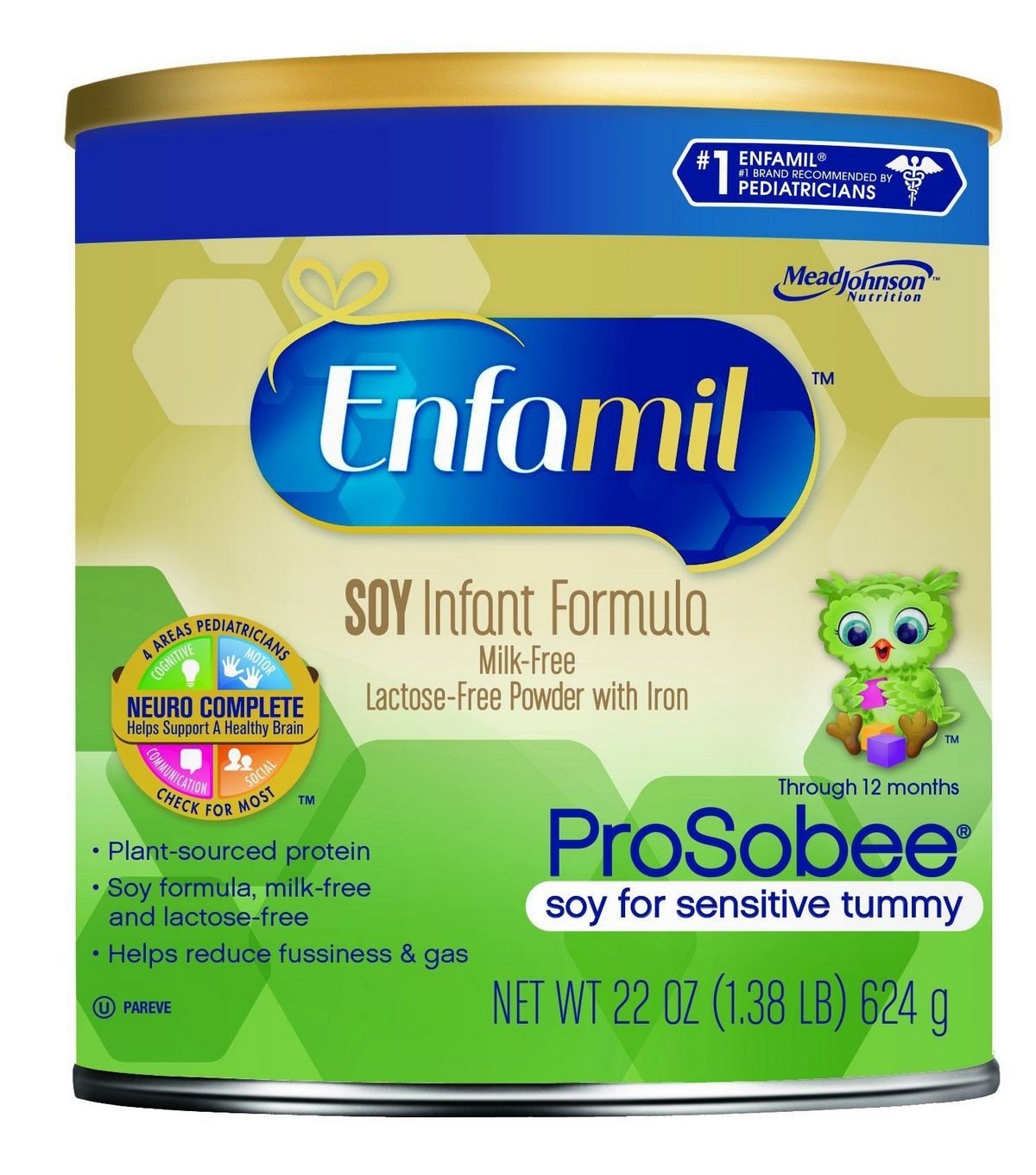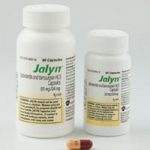
Contents
Is Soy Formula Good or Bad for Babies?
Soy formulas are based on soy protein and added carbohydrates. Soy-protein-based formulas have been available for a hundred years now and their use is well-established, but they may not be appropriate for babies born prematurely or with low birth weight.
Your baby needs optimal nutrition to grow and develop. Breastfeeding is considered the best option: Breast milk usually provides all the nutrients needed by a baby, and it is easy to digest. Nevertheless, some people still may choose infant formulas, which are mostly based on cow’s milk and designed to closely mimic breast milk so that babies get the same nutritional benefits. Other parents choose soy formula for environmental and health reasons.
All commercially sold formulas must meet the U.S. Food and Drug Administration (FDA) regulations, so you can be sure soy formula will provide enough calories and other nutrients for your baby, but soy formula differs significantly from breast milk and standard infant formula in some respects.
Babies younger than 6 months should only have breast milk or formula. Breast milk is the best food for babies. It is uniquely produced by each mother for her baby and almost always has the right amount and quality of nutrients. It is easily digested, and breastfed babies are less likely to have diarrhea, constipation, or allergies. Breast milk even contains antibodies and immune factors that protect your baby from infections.
Apart from breastfeeding, only formula feeding is safe and appropriate for babies. Types of formulas that are acceptable include:
- Cow-milk-based formula
- Soy formula
- Hypoallergenic (extensively hydrolyzed) formula
- Elemental (amino acid-based) formula
Soy formula nutrition
Soy formulas are based on soy protein and added carbohydrates. All soy formulas are lactose-free. Carbohydrates in soy formula include glucose polymers, corn syrup, maltodextrin, and sucrose.
All soy formulas that are approved for sale are fortified with calcium, iron, vitamin D, zinc, L-methionine, L-carnitine, and taurine to provide adequate proteins. They have the following nutrient values:
- Protein: 1.65 to 1.90 grams per 100 milliliters
- Fats : 3.4 to 3.6 grams per 100 milliliters
- Carbohydrates: 6.9 to 7.4 grams per 100 milliliters
Proteins in animal-source foods, like cow’s milk, meat, fish, and eggs, are complete proteins. They contain all the nine essential amino acids needed by your body. Most plant-origin proteins lack one or more of the amino acids, but soy protein is complete.
Reasons to choose soy formula
Lactose is the chief sugar in milk, especially breast milk. The enzyme lactase breaks lactose down into glucose and galactose in the intestines. Babies with lactose intolerance, though, have a deficiency of this enzyme and develop watery diarrhea, gas, bloating, and other symptoms when fed breast milk or formula containing lactose. Lactose intolerance can be temporary (for example, after diarrhea) or permanent (hereditary).
Soy formulas contain no animal milk and are free from lactose. Your doctor may prescribe a lactose-free formula for your baby. A lactose-free cow-milk-based formula is also available.
Galactosemia
This is an inborn condition that affects the metabolism: Specifically, your baby’s body cannot metabolize galactose. This condition can cause brain damage, liver failure, and death. Babies with galactosemia can never have breast milk or formula that contains lactose. Soy formula is an option in these cases.
Long-term health
Soy consumption reduces blood cholesterol levels and heart disease risk. Soy formula is sometimes recommended based on the reasoning that it might protect babies from these disorders in later life.
Allergies
Some children are allergic to cow milk protein. They have diarrhea and blood in their stool when fed with cow-milk formula. In these cases, soy formula is a useful alternative. Unfortunately, about half of the affected children are also allergic to soy protein, in which case they need an amino-acid-based (elemental) formula.
Environmental concern
Dairy animals release greenhouse gases and strain the environment. Environmental concerns lead some parents to avoid infant formulas based on cow’s milk, sometimes choosing soy formula as an alternative.
If you’re a vegan family, breastfeeding is a good option. If you choose not to breastfeed, soy formula is the only vegan choice.
However, the Canadian Pediatric Society advises that all babies should be breastfed. If that’s not possible, they recommend an iron-fortified, cow-milk-based formula. Soy milk formula is recommended only for babies with galactosemia and for families that don’t consume milk for cultural or religious reasons.
QUESTION
Is soy formula good enough?
Soy-protein-based formulas have been available for a hundred years now, and such formulas are used by about 20% of formula-fed babies, and their use is well-established.
Soy formulas provide as much energy (calories) as cow-milk-based formulas. Babies fed using soy formula have adequate blood protein levels, indicating good nutrition. In the long term, these babies display normal growth, sexual development, immune function, and neurodevelopment.
However, soy formulas are not appropriate for babies born prematurely or with low birth weight. These babies have lower blood phosphorus levels and reduced calcium deposits in bones (osteopenia). This happens even if the babies are given additional calcium and vitamin D. For premature babies, cow milk, protein-based formulas specially designed for these babies are superior.
Soy formula safety concerns
Your baby’s formula could be their only source of nutrition for several months. Any deficiencies in the formula or ingredients with the potential for harm, then, can have serious health effects.
Genistein is a plant-derived, estrogen-like compound found in soy formula. It may alter your baby’s hormonal balance and endocrine system. Girls fed on soy formula experience changes in their vaginal cells and uterus size similar to the effect of increased estrogen. The long-term outcomes of these changes are as yet unknown.
Aluminum has no known benefits for humans. The concentration in soy formula (600 to 1300 nanograms per milliliter), though, is much more than what is found in human milk (4 to 65 nanograms per milliliter). Aluminum reduces the absorption of calcium and causes osteopenia (reduced mineralization of bones).
At the end of the day, though, if you choose not to breastfeed your baby, you must use formula. Animal milk is not safe or appropriate for newborn babies and infants below 1 year of age. Rice and other plant-based beverages are also not appropriate: They don’t provide enough nutrition, even if fortified.
Store-bought formulas are a safe option for almost all babies, but it’s best to ask your pediatrician for advice before using a special formula like soy formula.
Soy formulas are not generally better than cow-milk formulas, and there are no health or medical benefits associated with their use for most babies. However, some medical conditions make it impossible for your baby to consume cow-milk formulas. Soy milk formulas can then typically be safely used in such situations based on medical advice.
American Academy of Pediatrics: "Choosing a Baby Formula," "Specialized Infant Formulas," "Use of Soy Protein-Based Formulas in Infant Feeding."
British Dietetic Association: "Paediatric Specialist Group Position Statement: Use of Infant Formulas based on Soy Protein."
British Heart Foundation: "Protein: What you need to know."
Canadian Pediatric Society: "Breastfeeding."
Children’s Hospital of Philadelphia: "Babies Fed Soy-based Formula Have Changes in Reproductive System Tissues."
Circulation: "Soy Protein and Cardiovascular Disease."
National Organization for Rare Disorders: "Galactosemia."
U.S. Department of Health and Human Services: "Information for Families During the Formula Shortage."


